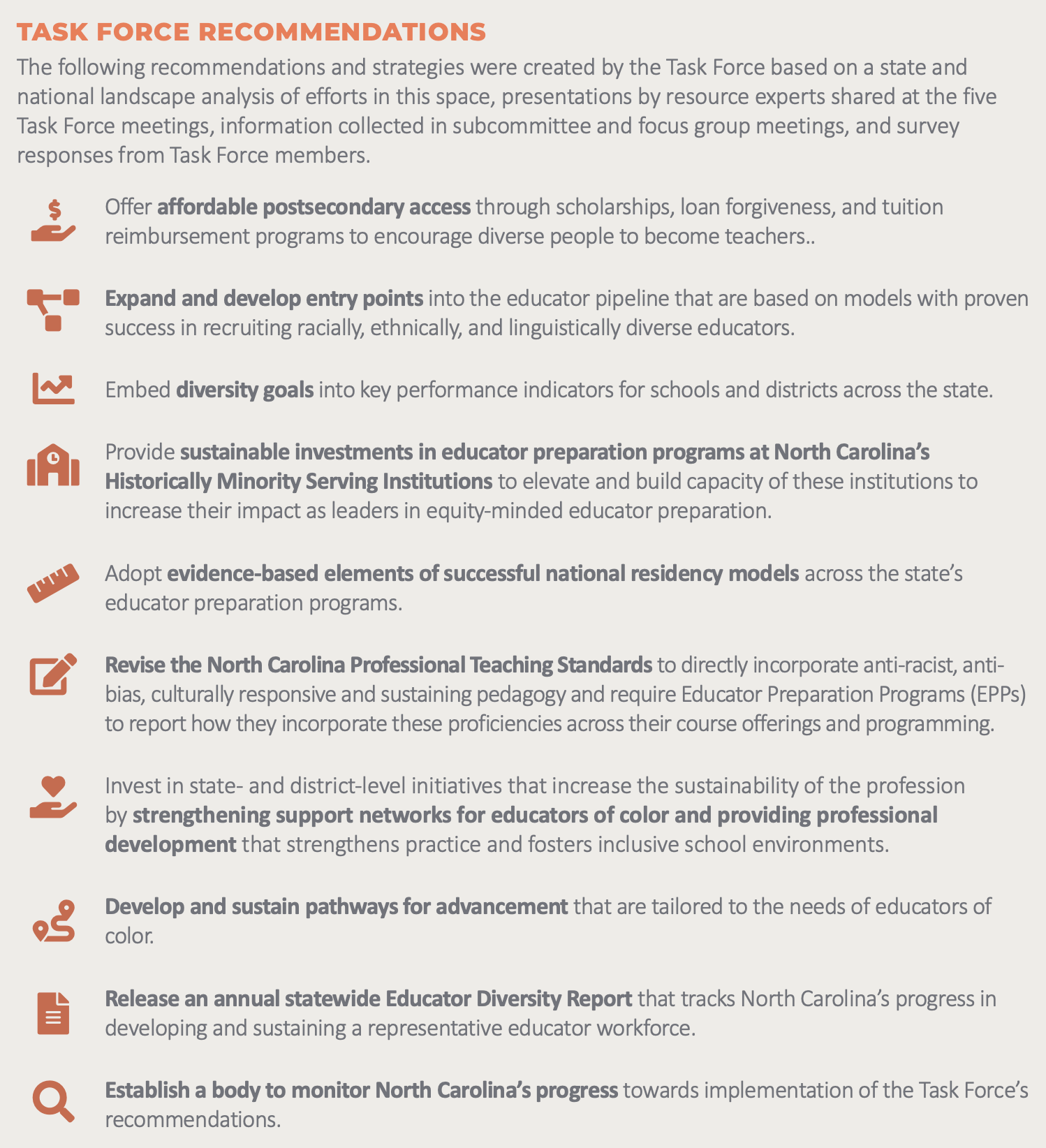By Deanna Townsend-Smith, Ed.D.
RALEIGH (March 6, 2024) – Black History Month was an opportunity to reflect on the past and to imagine the possibility and benefits of maintaining a diverse society.
It was also a month when the N.C. Supreme Court heard – for the fifth time – arguments over whether the state of North Carolina is doing enough to support its public schools.
History tells us that access was accomplished during desegregation; however, the pipeline of educators of color was diminished.
Substantial research documents the impact of a diverse educator workforce and the lasting benefits of that workforce for every child. Over 50% of NC’s student population are Black and Brown, with only 21% of teachers reflecting that population.1
A diverse educator workforce benefits not solely minority students, but all students.2
Representation matters, as it helps to instill aspiration. Benefits of a diverse educator workforce include positive impacts on academic outcomes, college aspirations, decreased punitive discipline, and increased self-confidence, social-emotional outcomes, and engagement.
Gov. Roy Cooper issued an executive order to establish the DRIVE Task Force in December 2019. DRIVE stands for Developing a Representative and Inclusive Vision for Education. The Task Force produced a report detailing recommendations our state must pursue to not only recruit, but retain a diverse educator workforce.
In December 2023, the Dudley Flood Center for Educational Equity and Opportunity was unanimously approved by the DRIVE Task Force to advance the work of the Task Force and establish accountability for its recommendations.
The Flood Center advocates for changes in policy and practice to build an equitable education system that meets the social, emotional, and academic needs of North Carolina’s diverse student population.
The Flood Center will continue the work of the Governor’s DRIVE Task Force. The Center will:
- Advocate for increased racial, ethnic, and linguistic diversity of North Carolina’s educator workforce.
- Work with stakeholders to implement the DRIVE recommendations.
- Establish accountability and progress monitoring with appropriate partners.
Our State’s constitution forever guarantees education for each child. In 1997, the N.C. Supreme Court in Leandro v. State defined a “sound basic education” as:
- “Sufficient ability to read, write, speak English and sufficient knowledge of fundamental math and physical science to enable students to function in a complex and rapidly changing society;”
- “Sufficient fundamental knowledge of geography, history, basic economic and political systems to enable students to make informed choices about issues that affect the student (personally, or in the student’s community, state, and nation);” and
- “Sufficient academic and vocational skills to enable the student to successfully engage in post-secondary education or vocational training and to compete with others in further formal education or gainful employment.”3
Further, a 2019 WestEd Report produced the first ever comprehensive, multi-year plan to help North Carolina’s public schools. It has seven recommendations, which have yet to be implemented after appeals to the courts.
One of the recommendations highlights the need for a system of teacher development and recruitment that ensures each classroom has a high-quality teacher who is supported with early and ongoing professional learning and competitive pay.
A DRIVE recommendation calls for investment in initiatives that strengthen support networks for educators of color and provide professional development that both strengthens teachers and fosters inclusive school environments.
Diversifying the educator workforce is directly tied to decreasing opportunity gaps.4
We must lean on history, which tells us that at a minimum, a sound basic education is required. But in addition to what is mandated in our state constitution to forever guarantee the success and outcomes for every student in our state, it is imperative to also lean on research to recruit and retain a diverse educator workforce.
Dr. Deanna Townsend-Smith is Senior Director of the Dudley Flood Center for Educational Equity and Opportunity.
1 https://hunt-institute.org/wp-content/uploads/2020/12/HI-DRIVE-Final-Report.pdf.
2 Figlio, 2017. https://www.brookings.edu/articles/the-importance-of-a-diverse-teaching-force/. See also: https://publicedworks.org/2017/11/uncc-teacher-pipeline/.
3 (346 N.C. 336 (N.C. 1997)
4 Figlio, 2017. https://www.brookings.edu/articles/the-importance-of-a-diverse-teaching-force/.


Leave a Reply